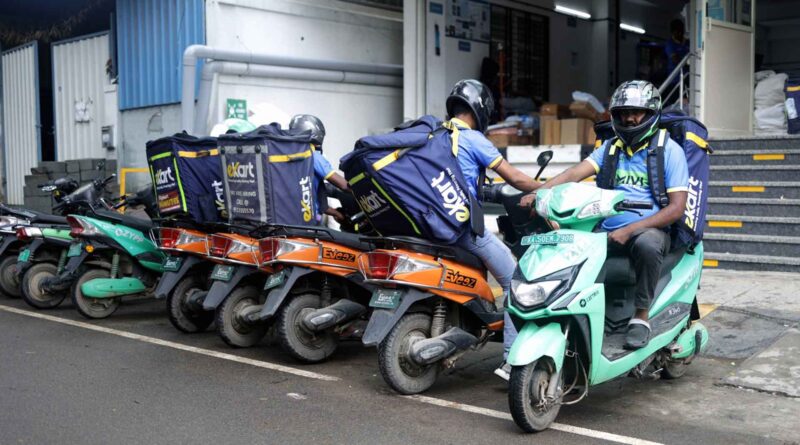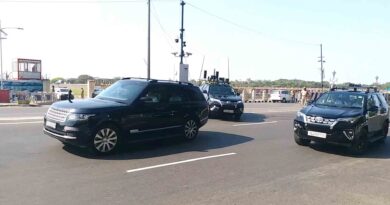Flipkart Achieves 10,000 Electric Vehicle Deployment Milestone in Delivery Fleet
Bengaluru: Flipkart, India’s homegrown e-commerce marketplace, has achieved a significant milestone, with the deployment of over 10,000 electric vehicles (EVs) in its delivery fleet. This accomplishment is the result of a phased integration of EVs in last mile delivery over the past few years, aligning to its commitment to adopting a fully electric logistics Last-mile fleet by 2030 as part of the Climate Group’s EV100 initiative. This news has been shared in the run up to Flipkart’s highly anticipated Sustainability Action Summit 2024, scheduled for 13th November at India Habitat Center New Delhi.
Currently, 75% of Flipkart’s electric fleet is concentrated in Tier-I cities including Delhi, Bangalore, Hyderabad and Chennai. In August 2024, Flipkart also shared that over 55% of its grocery orders were being fulfilled by EVs. Further, during the 2024 festive period, it successfully leveraged its EV fleet to complete over 16% of grocery deliveries to tier 2+ cities, including Lucknow, Sonipat, Ludhiana, Bhubaneswar, Malda, Hubli, and Vizag, ensuring sustainable and efficient service to these areas during a season of high demand.
The strategic adoption of EVs has resulted in substantial operational efficiencies, lowering the cost per order at the hub level and improving the last-mile delivery speed by 20%, compared to conventional delivery vehicles.
In addition to expanding its EV fleet, Flipkart is also making significant investments in charging infrastructure to support this sustainable transition. The organization has partnered with the Adani Group to establish 38 dedicated charging sites featuring a total of 190 chargers across key Tier-2 cities, with further public infrastructure developments planned to facilitate wider EV adoption. Furthermore, Flipkart has introduced a Last-Mile Aggregator model in Karnataka, Telangana and Tamil Nadu, collaborating with EV-focused fleet operators to enhance supply chain operations and scale the integration of electric vehicles.
Sharing his views on this milestone, Hemant Badri – SVP, Group Head of Supply Chain, Customer Experience & Re-commerce Business at Flipkart Group said, “With the deployment of over 10,000 EVs, what we have achieved is more than a logistical shift – it is a testament to our dedication to creating a lasting positive impact on the environment while enhancing service efficiency for our customers. By pairing our expanded EV fleet with critical investments in charging infrastructure, we are not only driving operational excellence but also setting a benchmark for sustainable practices in the industry at large. As we continue to scale this transition, we remain focused on creating a supply chain that is both resilient and sustainable”.
Speaking about the latest achievement in Flipkart’s Sustainable vision, Nishant Gupta, Head of Sustainability at Flipkart said “Since the beginning of our journey towards electrifying our fleet, we have worked tirelessly to transform our delivery network to build a greener future. To sustain and accelerate the momentum of electric vehicle adoption in the Indian market, several ecosystem interventions are crucial and we are proud to say that we have made positive strides in that direction. Through our strategic partnership with the Climate Group’s EV100 initiative and collaborations with leading OEMs, EV service providers, charging infrastructure partners, financing bodies, and manpower sourcing agencies, we are well-positioned to achieve a 100% last-mile electric fleet by 2030. This shift not only aligns with our broader vision for sustainability but also enhances the service experience for our delivery executives by providing a smoother, more efficient and cost-effective mode of transport and creating cleaner cities for our customers.”
This development further strengthens Flipkart’s position as a responsible corporate citizen, reiterating its goal of transitioning to 100% electric vehicles In last-mile by 2030, while delivering reliable, efficient, and sustainable services to its customers.




